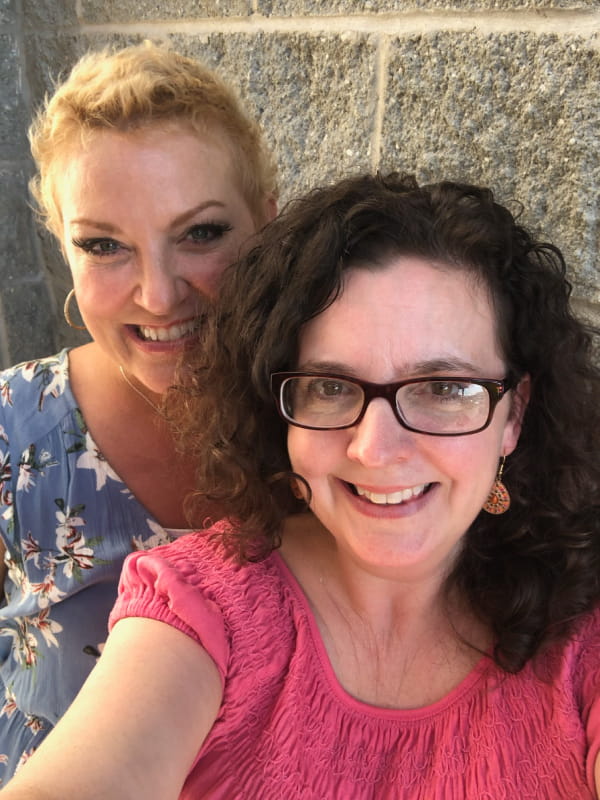It is often said that we cannot define the bond of sisterhood. When that bond was tested not by distance or careers or even children but by stage IV cancer just 18 months apart, sisters Samantha McInturff and Amanda Glass, now 51 and 48 respectively, stepped up to help the other fight the biggest battle of their lives.
It was October of 2019 when Samantha McInturff's sister Amanda Glass was diagnosed with invasive ductal carcinoma, stage IV breast cancer, at the age of 44, through a routine mammogram. The cancer had metastasized to her liver, and she was placed on two different chemotherapy cocktails. Amanda had been living with Samantha and her family, who helped get her to treatments and doctor appointments. Scared they were going to lose Amanda, Samantha stood by her sister as she began her healing journey from the surgeries and the 38 rounds of daily radiation until September 2020, when she rang the bell! Today, Amanda is cancer-free.
Eighteen months to the day of Amanda's diagnosis, in March of 2021, Samantha found herself needing a colonoscopy after a positive noninvasive at-home colorectal cancer screening test from what she believed to be symptoms of hemorrhoids. At that moment, Samantha's life flashed before her eyes when her gastroenterologist told her she had colon cancer at 48 years old. She was now a stage four colorectal cancer patient with a small tumor in her lower colon and several tiny nodules on her lungs. What were the chances of two sisters finding their bond grow even stronger in the battle of their lives?
"I am thankful for my sister who walked through this before me. She was there for me when I needed her. My boys were in middle school when I was diagnosed. They weren't scared because they had watched my sister, who lived with us then, walk through her battle," Samantha shared.
Samantha had her first infusion treatment in April of 2021, and it was now Amanda's turn to stand by her sister. The treatments worked, and quarterly scans showed Samantha's nodules shrinking and disappearing. Nearly two years later, Samantha received the results the sisters had been waiting for—no evidence of residual, recurrent or metastatic disease. Samantha, too, was stable.
The sisters have one message—get screened! According to American Cancer Society research, colon cancer cases under age 50 are on the rise, and the recommendation is to get your colonoscopy at age 45. Furthermore, colorectal cancer is now the leading cause of cancer death in men and the second in women under 50 years old, making the overall lifetime risk of developing colorectal cancer about 1 in 23 for men and 1 in 25 for women. However, each person's risk might be higher or lower than this, depending on their risk factors.
Wellstar cares for the health and well-being of every person we serve, making a difference in thousands of lives every year—providing deeply compassionate care that takes each person’s unique life story into account and allows people to live their best lives. If you have a family history or symptoms, it is important to get screened earlier. Screening can prevent colorectal cancer by detecting and removing precancerous growths (polyps) and by detecting cancer at an early stage, allowing the treatments to be more successful. Regular adherence to screening reduces the risk of colorectal cancer incidence and death.
Wellstar is actively engaged with the American Cancer Society on several initiatives that address and support patients undergoing cancer treatments in Georgia. Visit cancer.org/getscreened to learn more.

Amanda Glass (left) and Samantha McInturff (right)




